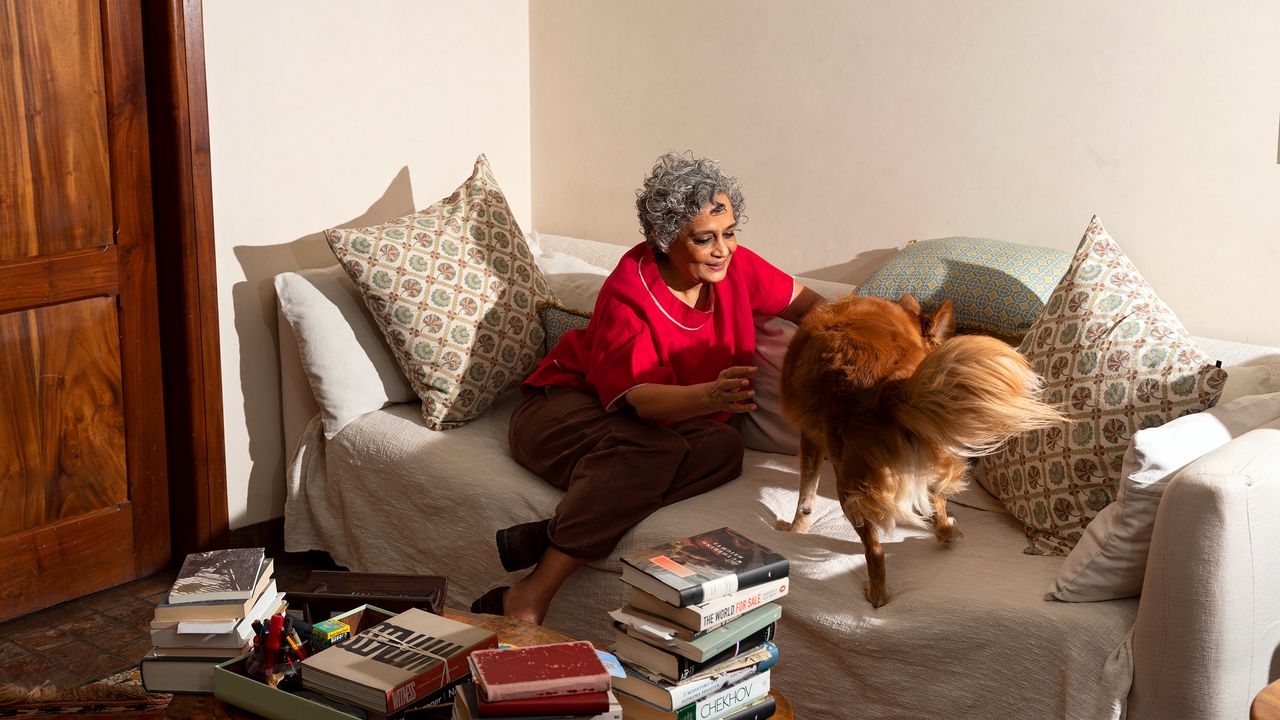
Mother Mary Comes to Me begins with Roy’s childhood, in which she recounts moving from Assam, India, to the hill station town of Ooty, and later to Kerala, where her mother eventually set up a school. While they tried to find a foothold in Ooty, her mother’s older brother and her grandmother attempted to evict the family, invoking an inheritance law that left daughters with little protection.
A teacher was what my mother had always wanted to be, what she was qualified to be. During the years she was married to and living with our father, who had a job as an assistant manager on a remote tea estate in Assam, in northeastern India, the dream of pursuing a career of any kind atrophied and fell away. It was rekindled (as nightmare more than dream) when she realized that her husband, like many young men who worked on lonely tea estates, was hopelessly addicted to alcohol.
When war broke out between India and China in October 1962, women and children were evacuated from border districts. We moved to Calcutta. Once we got there, my mother decided that she would not return to Assam. From Calcutta we traveled across the country, all the way south to Ootacamund—Ooty—a small hill station in the state of Tamil Nadu. My brother, LKC—Lalith Kumar Christopher Roy—was four and a half years old, and I was a month away from my third birthday. We did not see or hear from our father again until we were in our 20s.
In Ooty we lived in one half of a “holiday” cottage that belonged to our maternal grandfather, who had retired as a senior government servant—an imperial entomologist—with the British government in Delhi. He and my grandmother were estranged. He had severed links with her and his children years ago. He died the year I was born.
I don’t know how we got into that cottage. Maybe the tenant who lived in the other half had a key. Maybe we broke in. My mother seemed familiar with the house. And the town. Perhaps she had been there as a child, with her parents. The cottage was dank and gloomy with cold, cracked cement floors and an asbestos ceiling. A plywood partition separated our half from rooms that were occupied by the tenant. She was an old English lady called Mrs. Patmore. She wore her hair in a high, puffy style, which made us wonder what was hidden inside it. Wasps, we thought, my brother and I. At night she had bad dreams and would scream and moan. I’m not sure if she paid any rent. She might not have known whom to pay it to. We, certainly, paid no rent. We were squatters, interlopers—not tenants. We lived like fugitives amid huge wood trunks packed full of the dead imperial entomologist’s opulent clothes—silk ties, dress shirts, three-piece suits. We found an old biscuit tin full of cuff links. (Obviously my grandfather was an enthusiastic collaborator with the colonial government and took the imperial part of his professional designation seriously.) Later, when my brother and I were old enough to understand, we would be told the legendary family stories about him: about his vanity (he had a portrait of himself taken in a Hollywood photo studio) and his violence (he whipped his children, turned them out of the house regularly, and split my grandmother’s scalp open with a brass vase). It was to get away from him, our mother told us, that she married the first man who proposed to her.
#Exclusive #Excerpt #Memoir #Arundhati #Roy #Writes #Early #Upbringing






